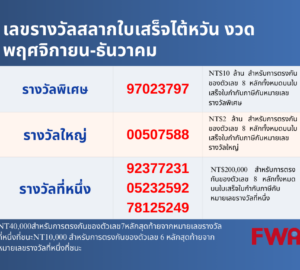(FWA 2025/09/16)Immigrant and migrant worker communities in Taiwan have become a new target for fraud groups. A recent survey report released by the non-governmental organization “TransAsia Sisters Association, Taiwan” (TASAT) indicates that approximately 30% of immigrants and migrant workers have personally encountered scams. Many have seen their hard-earned savings evaporate overnight, while others have unwittingly become criminals, facing the fate of deportation.
The investigation found that “fake job brokers” are one of the most rampant types of scams, affecting almost 30% of victims. Capitalizing on migrant workers’ eagerness to switch jobs and seek higher wages, fraud groups often spread false recruitment messages on social media platforms like Facebook and LINE.
Posing as brokers, they claim they can “guarantee a position” at a well-known factory or assist with legal job transfer documents in exchange for a “referral fee” or “document processing fee” of tens of thousands of dollars. However, after many victims transfer the money, the other party vanishes. Not only do they lose the job opportunity, but they also cannot recover the hefty fees, worsening their predicament.
In addition to fake job offers, nearly 30% of scams involve the fraudulent acquisition of personal information and bank accounts. For instance, fraud groups set up stalls outside health check clinics, using “exclusive offers for new migrant workers” and giveaways like free SIM cards to lure workers. They then trick them into providing copies of their Alien Resident Certificates (ARCs) and passports, which are later used for criminal activities, leading to the workers being accused of fraud.
Another common tactic exploits the trust among fellow countrymen. Scammers may ask to borrow a bank account, claiming they “just arrived in Taiwan and don’t have an account to receive money.” Alternatively, they openly offer to buy passbooks and ATM cards online for several thousand dollars a month. Under peer pressure and limited information, migrant workers easily hand over their accounts, unaware that they have become accomplices in money laundering.
The report also shows that impersonating official authorities or well-known companies is a common method. Scammers pose as government officials or logistics companies, carrying out fraud through fake account transfers or claims of delayed packages. Furthermore, over 30% of cases involve friends or relatives falsely claiming their bank accounts have been hacked and asking the victim to lend them money or make a transfer.
Not only are foreign nationals falling victim to scams, but there is also a rising number of them becoming involved in criminal fraud cases by lending their accounts or being recruited by fraud rings. According to statistics from Taiwan’s National Police Agency, over 2,000 foreign nationals were involved in criminal fraud cases in the first half of 2025 alone, a number that has already surpassed the total for the previous year.
Regardless of their knowledge, once an individual provides their bank account to another person, they can be identified as an “accomplice” in fraud and face criminal liability. If convicted in a fraud case, they may face fines and prison sentences. This will also directly impact their work and residency rights in Taiwan, and in severe cases, could lead to mandatory deportation.
In response to the growing threat of fraud, the government continues to urge the public not to hand over personal documents or bank accounts for small gains or based on unverified online information. If you encounter a suspected scam, you can call the 165 anti-fraud hotline. If there are language barriers, you can first call the 1955 Labor Consultation and Complaint Hotline to request interpretation assistance.
※If you have any further questions about working, residency, transportation, or daily life in Taiwan, the ITaiwan AI Genie is always at your service.





